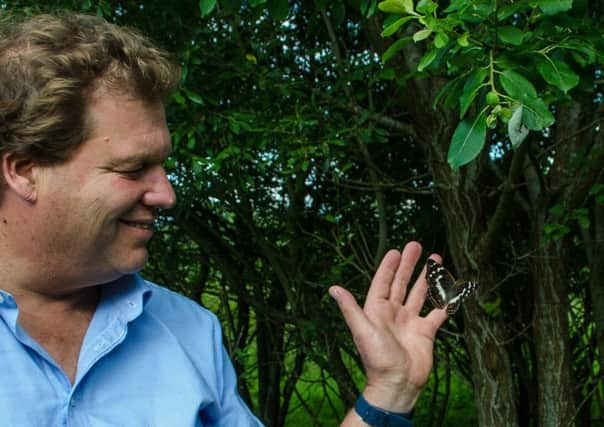Success of remarkable farmland experiment


Sir Charles is to join experts at a conference dedicated to discussing the conservation technique of rewilding which has proved a remarkably successful experiment at Knepp.
The 3.500 acre Knepp Estate has been owned by the Burrells for over 220 years. Sir Charles inherited it from his grandparents and moved into the castle in 1987.
Advertisement
Hide AdAdvertisement
Hide AdThe grounds were farmed intensively since the Second World War, but rarely made a profit - until Sir Charles, the 10th Baronet, set about making changes. With his wife, Isabella Tree, they embarked on extensive renovations in the mid-1990s.
Now Sir Charles is to share his inspiring story with other leading agriculturalists. Sir Charles, or Charlie as he prefers to be known, is an alumnus of the Royal Agricultural University and will speak alongside other specialists at a conference organised by the Royal Agricultural University and Cirencester Sixth Form College.
The one-day conference on November 20 will bring together rewilding and land management experts to share their experiences and plans for the future.
Charlie will describe the pioneering Knepp wildling project at his estate which has become a flagship for farmland restoration.
Advertisement
Hide AdAdvertisement
Hide AdHe said of his project: “Using free-roaming grazing animals as the drivers, and with the restoration of natural water courses, we’ve seen extraordinary increases in wildlife – including some incredibly rare species.
“The Knepp Wildland Project is not driven by specific goals or target species. Instead, management is kept to a minimum and nature is allowed as much freedom as possible.
“This ‘process-led’ approach is proving to be a highly effective, low-cost method of ecological restoration and is providing vital ecosystem services like soil restoration, water purification and carbon sequestration.
“The estate is still farming, albeit far more extensively, producing 75 tonnes of low-input, organic, pasture-fed meat per annum from its free-roaming herds. Wildlife tourism provides another significant income stream.”
Charlie’s wife Isabella Tree published a book called Wilding: The Return of Nature to a British Farm earlier this year.